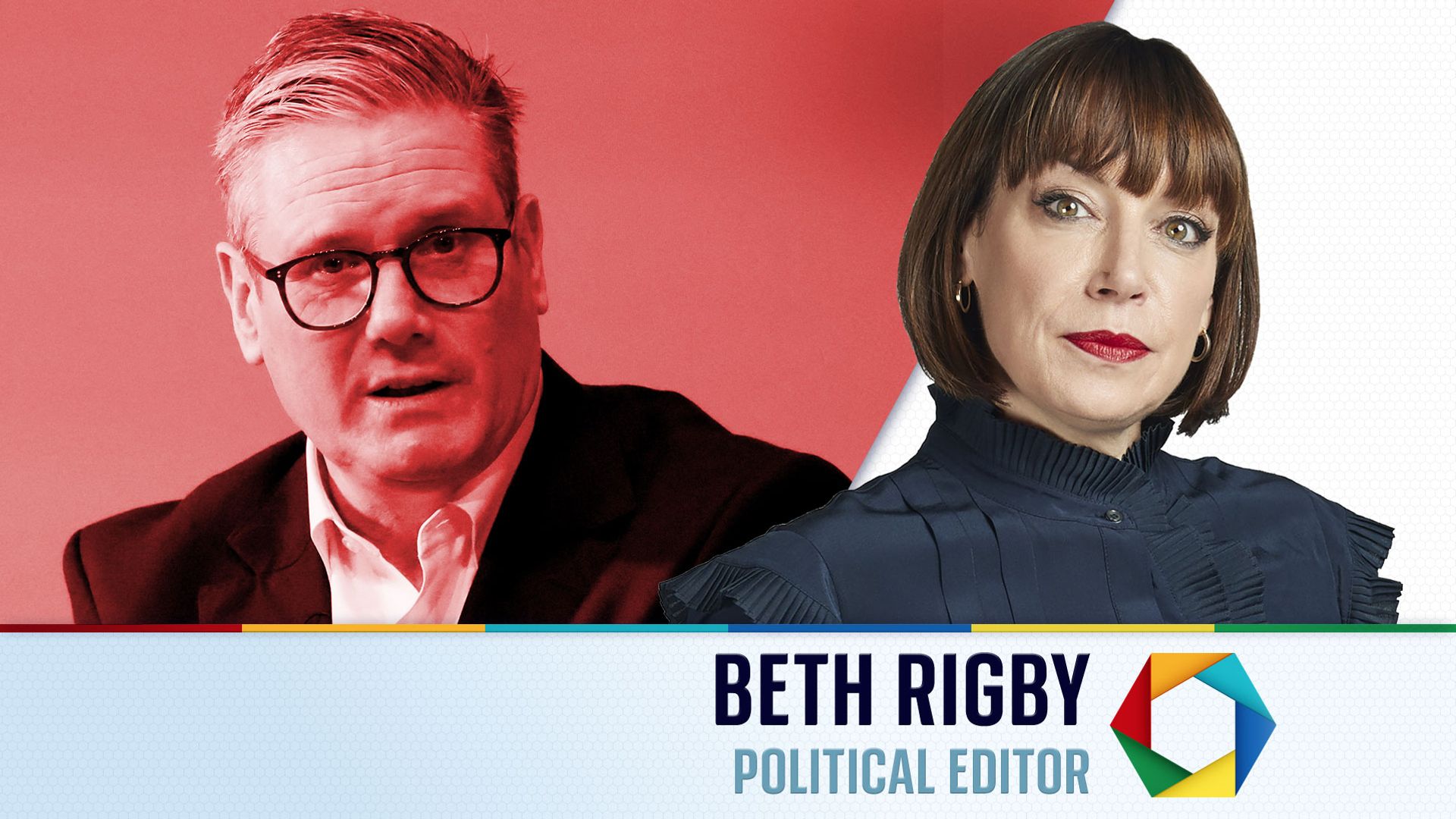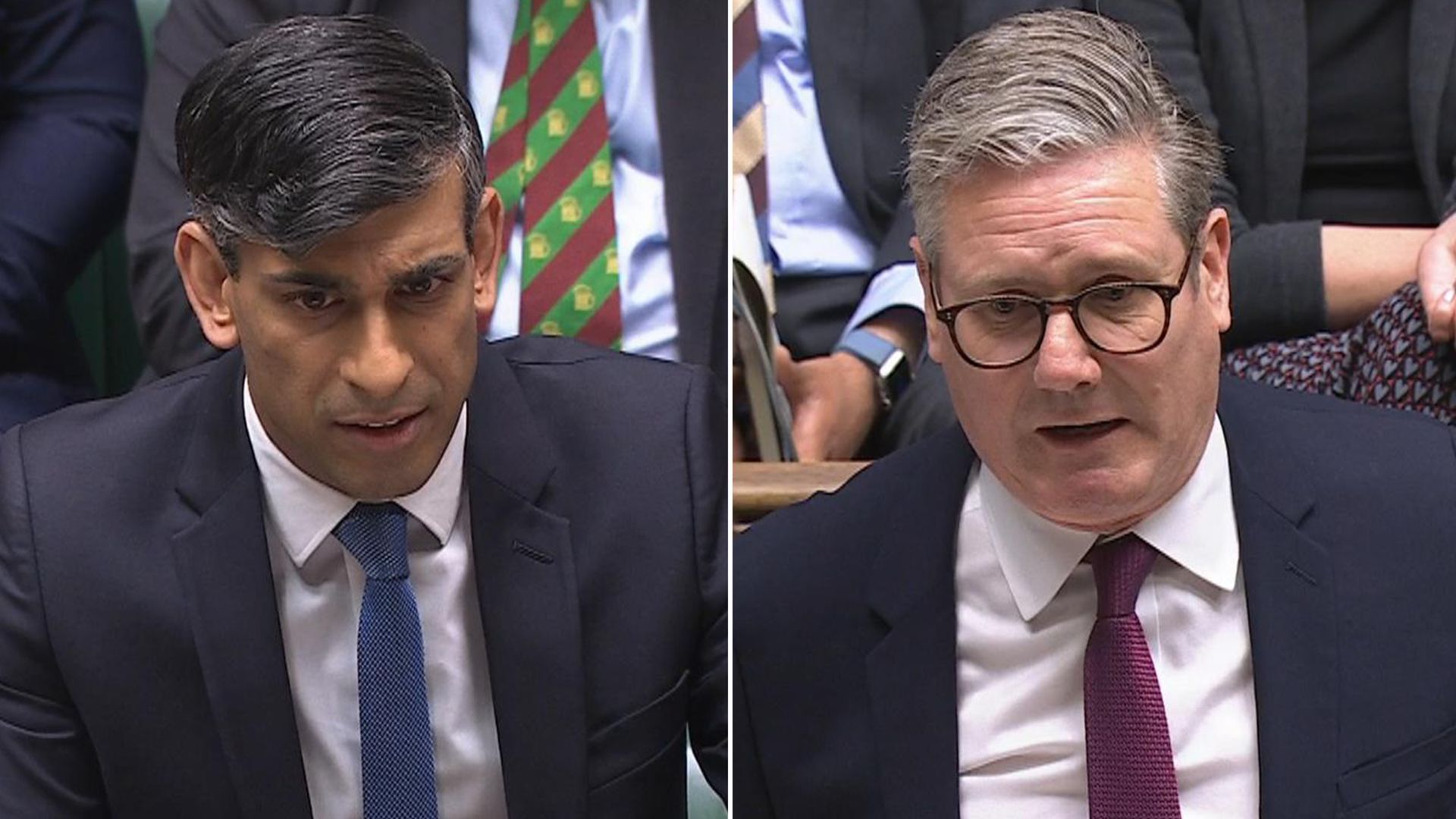Two weeks in office and Sir Keir Starmer has met pretty much every single European leader personally.
As one official quipped, it’s been a fortuitous start: “He’s done in a week what would normally take you five years.”
The combination of the NATO summit in Washington DC just days into office, followed by the UK hosting the bi-annual European Political Community (EPC) summit, has given the prime minister an opportunity to reset relations with allies that he knows he needs to work with to drive through key aspects of his domestic agenda – tackling small boats and getting more economic growth.
And it is an opportunity he has seized.
In order to prove to European leaders he really does want a reset, he opened the summit at Blenheim Palace in Oxfordshire – the birthplace of Sir Winston Churchill – with the announcement that his government would never seek to withdraw from the European Convention of Human Rights (ECHR).
That drew a clear distinction between Labour and their Conservative rivals, as well as pleasing European partners.
Keep up with all the latest news from the UK and around the world by following Sky News
To hammer home the point, Number 10 arranged for the Treaty of London, signed in 1949 to give birth to the ECHR, to be displayed at Blenheim.
Starmer unveils plan to stop illegal migration crisis ‘at source’
Starmer says ‘new approach’ to Europe begins at Blenheim Palace summit – with focus on Putin and people smuggling
Ariane 6 launch live: Watch after Europe’s newest rocket blasts off for first time
One EU diplomat said to me afterwards: “The ECHR announcement was a genuine surprise and everyone liked [the Treaty of London display] very much. It was the greatest reassuring message that the EU will take back home and it will open up doors.”
“The atmosphere has totally changed,” said another UK official, who has been to these summits during the more bruising Brexit years.
“Starmer has the benefit of trying to actually do things better – be that around Ukraine, migration or energy security – rather than worrying about Daily Telegraph headlines.”
So far, so good. But when and if this fresh approach actually garners results is a very big question.
As he arrived at the one-day summit, French President Emmanuel Macron told reporters there is not one silver bullet to fix the migration crisis, while Sir Keir told me he was inheriting a “really bad problem”.
“We’ve got record numbers this year,” he said. “We can’t switch that in 24 hours, in one week.
“Two weeks ago today, we were still knocking on doors, asking people to vote for us. We can’t turn it around that quickly… we’ve been left in a really difficult position… [and in a] very serious situation to try and turn around.”
With 550 people arriving on small boats to UK shores since Sir Keir took over the country two weeks ago, crossings this year stand at over 14,000.
On Thursday, the government announced that it was redeploying those working on the Tory Rwanda deportation scheme into working on the border, as well as increasing the number of people working on Europol to help tackle criminal gangs.
Please use Chrome browser for a more accessible video player
The prime minister also announced £84m of funding for African and Middle Eastern countries in an attempt to tackle the migration crisis “at source”.
For his part, Sir Keir said he was pragmatic about solutions to the migration crisis and said at the close of the summit there had been “interest” amongst leaders over a deal in which Italy sends asylum seeks to Albania for processing.
“I’m a practical person,” he said. “I’ve always said I will look at what works.”
This deal is different to Rwanda in that the claimant, if granted asylum, can return to Italy, where as under the Rwanda scheme there was no way back to the UK, regardless of the outcome of a claim.
Be the first to get Breaking News
Install the Sky News app for free
Sir Keir didn’t directly answer me when I asked him when he’ll be able to show the public progress. But his team know that the public do expect delivery.
Where he could be vulnerable politically is on the decision to scrap the Rwanda scheme. If the boat crossings fail to come down in the coming months, the Conservatives will be able to weaponise his decision and argue the prime minister got rid of a deterrent and replaced it with more migrants.
So he has to make his border taskforce work.
In short, the reset is on. But Sir Keir now has to leverage these relationships in order to get delivery. And that is going to be very hard indeed.





